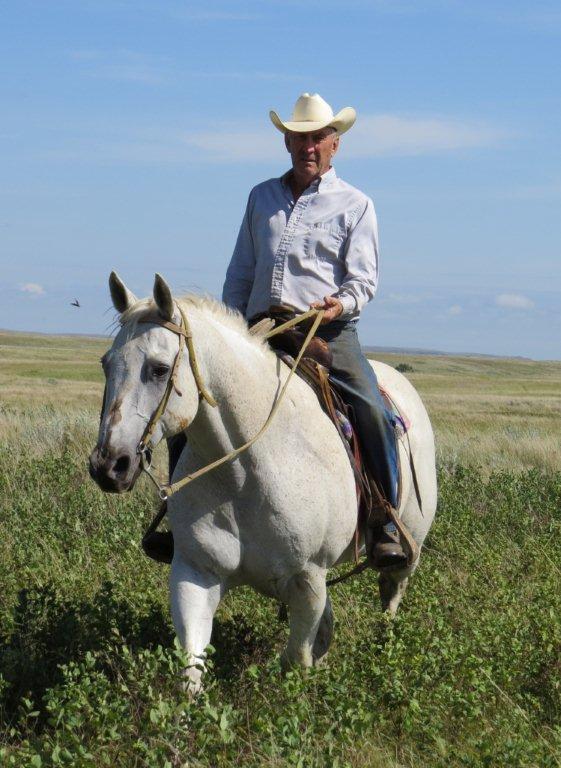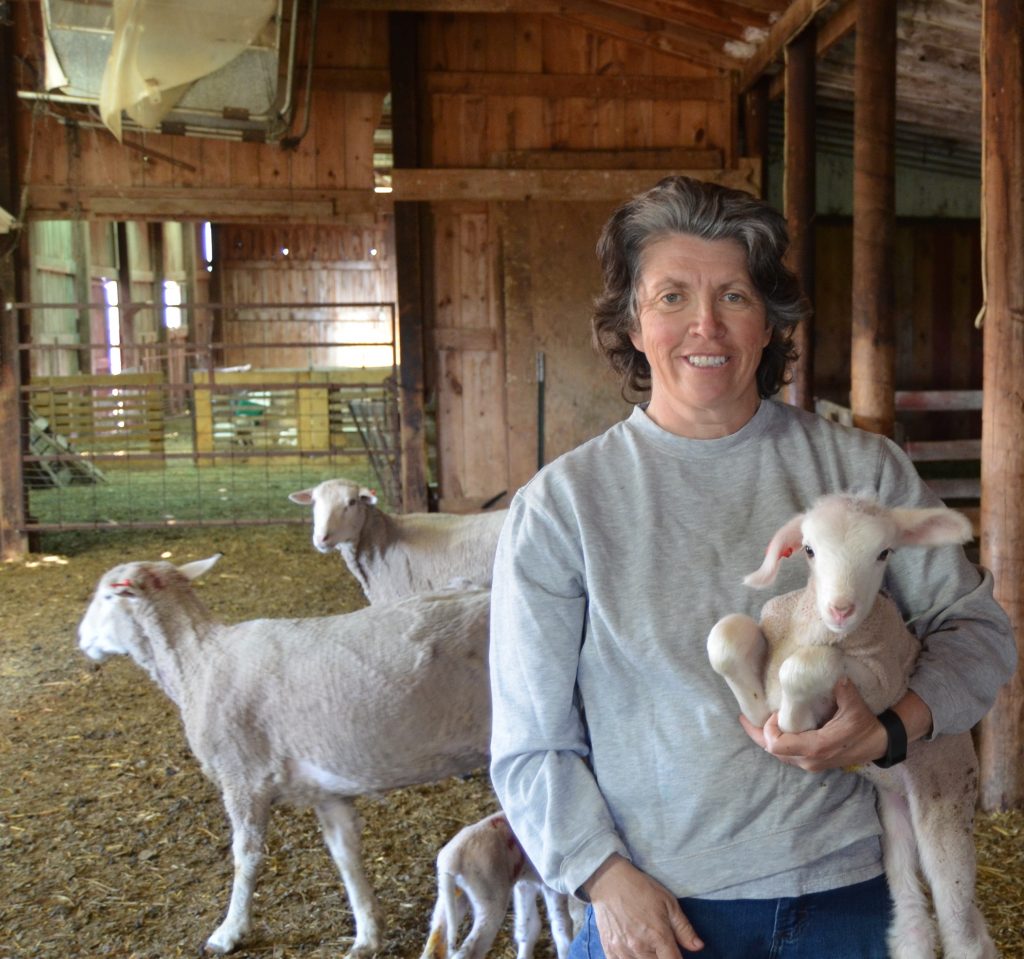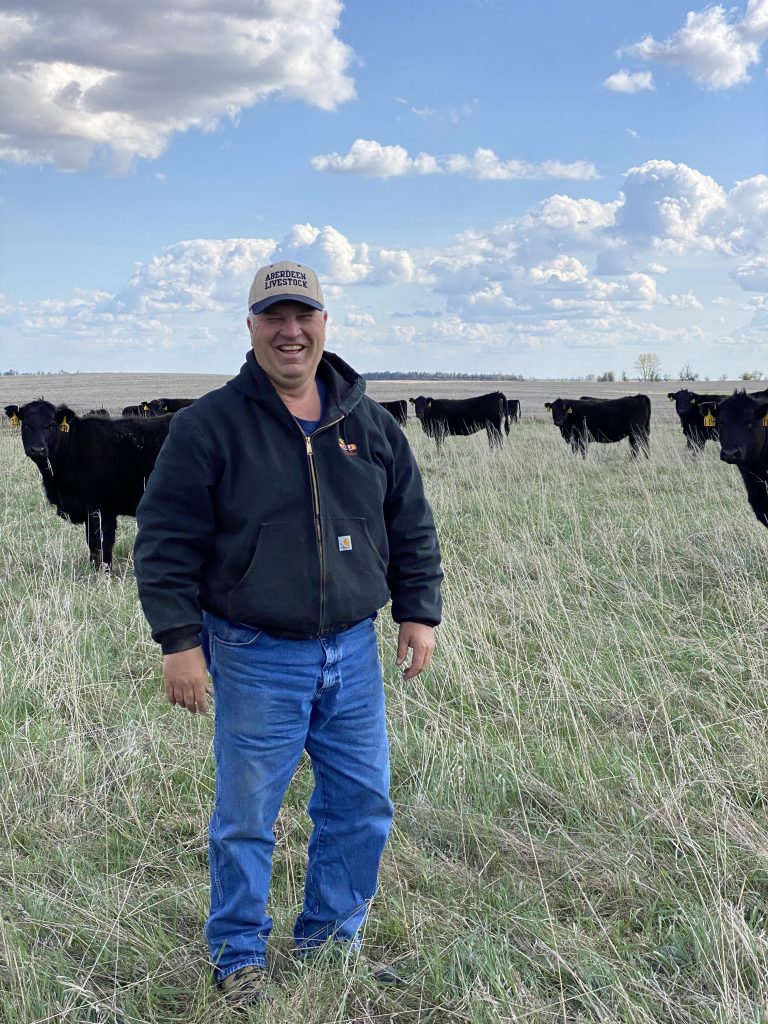New Secretary of Ag & Natural Resources Answers Producer Questions
Many South Dakota producers have questions for Hunter Roberts, the Secretary of the newly merged Department of Agriculture & Natural Resources. Read on as he answers their questions.

Jerry Petik, a third-generation Corson County rancher
Question: To assist and encourage more transparency and fair prices of cattle, how do you plan to advocate at the federal level on behalf of House Concurrent Resolution 6006 passed by the 2021 S.D. Legislature?
Secretary’s Answer: The South Dakota Department of Agriculture and Natural Resources (DANR) maintains strong relationships with Sen. Thune, Sen. Rounds, Rep. Johnson, and our partner agencies. We will continue to engage with them on these efforts. In addition, I’d encourage you to contact their offices and share your thoughts with them.
Question: Secretary Vilsack has indicated there may be an opportunity to reinstate country-of-origin labeling (COOL), what are your plans to assist him in these efforts?
Secretary’s Answer: DANR does not directly implement country-of-origin labeling (COOL) regulations. We will comply with applicable regulatory changes implemented by USDA and will continue to monitor the status of the COOL regulations. As you know, COOL was repealed in 2015 because the World Trade Organization ruled Canada and Mexico could begin imposing more than $1 billion in tariffs on U.S. products in response to the impacts COOL labeling requirements were having on them.
Question: What is your plan when it comes to getting state-inspected meat certified to cross state lines?
Secretary’s Answer: South Dakota is in the final stages of joining the Cooperative Interstate Shipping Program (CIS). The CIS program allows state-inspected plants to operate as federally-inspected facilities under specific conditions and ship their product in interstate commerce and internationally. DANR is excited about this opportunity to expand market options for South Dakota producers.
Question: What are your plans, when it comes to encouraging the development of local processing for South Dakota beef, grains and fiber (industrial hemp)?
Secretary’s Answer: In March, Gov. Kristi Noem announced she would direct $5 million in Coronavirus Relief Funds to provide grants to expand meat processing capacity in South Dakota. DANR is implementing this program and expects to begin distributing funds in early June.
Outside of this program, economic development for the processing of grains and fiber is supported by the Governor’s Office of Economic Development and local economic development corporations.
Question: What are your plans when it comes to developing more foreign export markets and relationships for South Dakota products?
Secretary’s Answer: DANR works with Food Export Midwest to evaluate export opportunities and assist producers seeking to export their products. Outside of this initiative, export development is largely handled by South Dakota checkoff organizations. Additionally, the USDA Foreign Agriculture Service and the United State Trade Representative dedicate nearly all their resources to develop and grow foreign markets.
Question: We see quite a bit of state investment in research and development for precision agriculture. As a western South Dakota livestock producer, I’m interested in learning if there are plans for development of technology that is more user-friendly and applicable to our climate and needs?
Secretary’s Answer: The South Dakota State University Cottonwood Field Station located between Wall and Philip has a long history of working on research and development projects specific to West River ranching activities. In 2018, those efforts were bolstered with the addition of SDSU’s West River Research Farm near Sturgis.
These facilities and SDSU’s West River Research and Extension office in Rapid City are part of the SDSU Agriculture Experiment Station research infrastructure whose goal is to enhance the quality of life in South Dakota through beneficial use and development of human, economic and natural resources. In 2021, the governor proposed, and the legislature approved $453,000 to the West River Research Farm specifically for precision ranching activities. DANR continues to support these efforts and looks forward to learning more about how producers can utilize these developments to protect the environment and lower their costs.
For more information about SDSU’s efforts visit: https://www.sdstate.edu/south-dakota-agricultural-experiment-station-sdsu or contact their West River Research and Extension office at 605-394-2236.

Tammy Basel, Union Center sheep and cattle producer
Question: Colorado State Ballot Initiative Protect Animals from Unnecessary Suffering and Exploitation (PAUSE), has some concerning repercussions for South Dakota sheep and cattle producers. If passed, animals would need to reach 25 percent of their life expectancy prior to harvest. Cattle would have to be 5-years-old before slaughter and sheep would need to be 2-years-old. A lamb becomes mutton about one year of age, and the eating experience is drastically different. Two of the major lamb packers are located in Colorado and a significant amount of cattle are harvested there also. In South Dakota, a measure like this would probably be easily defeated. However, if it passes in Colorado, what do you plan to do if this does pass to assist South Dakota producers?
Secretary’s Answer: We have reviewed Colorado’s PAUSE ballot initiative and strongly oppose it. I expect farm groups in Colorado will work together to ensure it does not progress.
In South Dakota, DANR is working to expand meat processing capacity across the state. In March, Gov. Kristi Noem announced she would direct $5 million in Coronavirus Relief Funds providing grants to expand meat processing capacity at our small processing facilities. DANR expects to begin distributing these funds in early June. In addition, South Dakota is in the final stages of joining the Cooperative Interstate Shipping Program (CIS). The CIS program allows state-inspected plants to operate as federally-inspected facilities under specific conditions and ship their product in interstate commerce and internationally. DANR is excited about these opportunities to expand market options for South Dakota producers.
Question: Because trapping is an important tool for predator management, what are your plans to protect the bounty program and encourage more youth to engage in trapping?
Secretary’s Answer: South Dakota Game, Fish & Parks manages the Nest Predator Bounty Program. The program is open to South Dakota residents, including youth hunters, through July, or until a maximum payout of $500,000 is reached. In fact, last year 16 percent of program participants were 17-years-old or younger. I hope to see these numbers continue to increase, especially, since the program is paying $10 per tail this year compared to $5 per tail last year.
In addition, DANR provides Game, Fish & Parks with $250,000 annually for animal damage control efforts. As a producer and member of the Animal Damage Control Advising Committee, I understand how important these efforts are.
Question: What does your department plan to do to promote South Dakota wool and lamb?
Secretary’s Answer: As with all agricultural products from South Dakota, DANR continues to promote the sheep industry whenever possible on social media and through the South Dakota State Fair. In addition, in March, Gov. Kristi Noem announced she would direct $5 million in Coronavirus Relief Funds to provide grants to expand meat processing capacity in South Dakota which is good for all our producers. DANR expects to begin distributing these funds in early June. Finally, South Dakota is in the final stages of joining the Cooperative Interstate Shipping Program (CIS). The CIS program allows state-inspected plants to operate as federally-inspected facilities under specific conditions and ship their product in interstate commerce and internationally. DANR is excited about these opportunities to expand market options for South Dakota producers.

Craig Schaunaman, Aberdeen Crop and Cattle Producer
Question: Is the DENR current with CAFO Inspections? If not, what is the plan to get current?
Secretary’s Answer: Due to a combination of issues including the COVID-19 pandemic, staffing and an increased workload associated with renewal of the 2017 General Water Pollution Control Permit for Concentrated Animal Feeding Operations (General Permit), DANR is behind on CAFO inspections. This is not acceptable, and we are taking steps to meet our inspection goals moving forward. For example, in 2019 and 2020 we moved 2.5 additional full-time employees into that program. Additionally, with the merger, two SDDA inspectors will be cross trained to conduct the onsite portion of the Operation and Maintenance inspections for permitted dairies covered under the General Permit. Furthermore, the new Livestock Services Program has gained an agronomist who will assist in reviewing operation and maintenance records and process applications freeing up time for inspectors to be in the field. Finally, during the past legislative session, Senate Bill 52 passed allowing DANR to issue state water pollution control permits with a life cycle of 10 years rather than 5 years allowing DANR to spend less time processing permit applications and more time conducting inspections. The new law did not change any of the other permit requirements.
Question: If they discover violations, how will the combined agencies deal with these violations?
Secretary’s Answer: As DANR’s Secretary, I expect our operators to comply with the laws and our job is to help them get and stay in compliance. If violations are found, the priority is to get the operator back into compliance. However, depending on the operator’s willingness to comply or the type of violation, DANR may follow up with a warning letter, formal enforcement action or referral to the Office of Attorney General to bring an operation back into compliance with their permit.
Question: Does the department have a plan to develop Carbon Markets?
Secretary’s Answer: DANR does not have plans to develop carbon markets in South Dakota. We are encouraged by the number of emerging private sector options, and we are monitoring USDA’s efforts on this issue. We will continue to advocate for policies that make sense for South Dakota.

